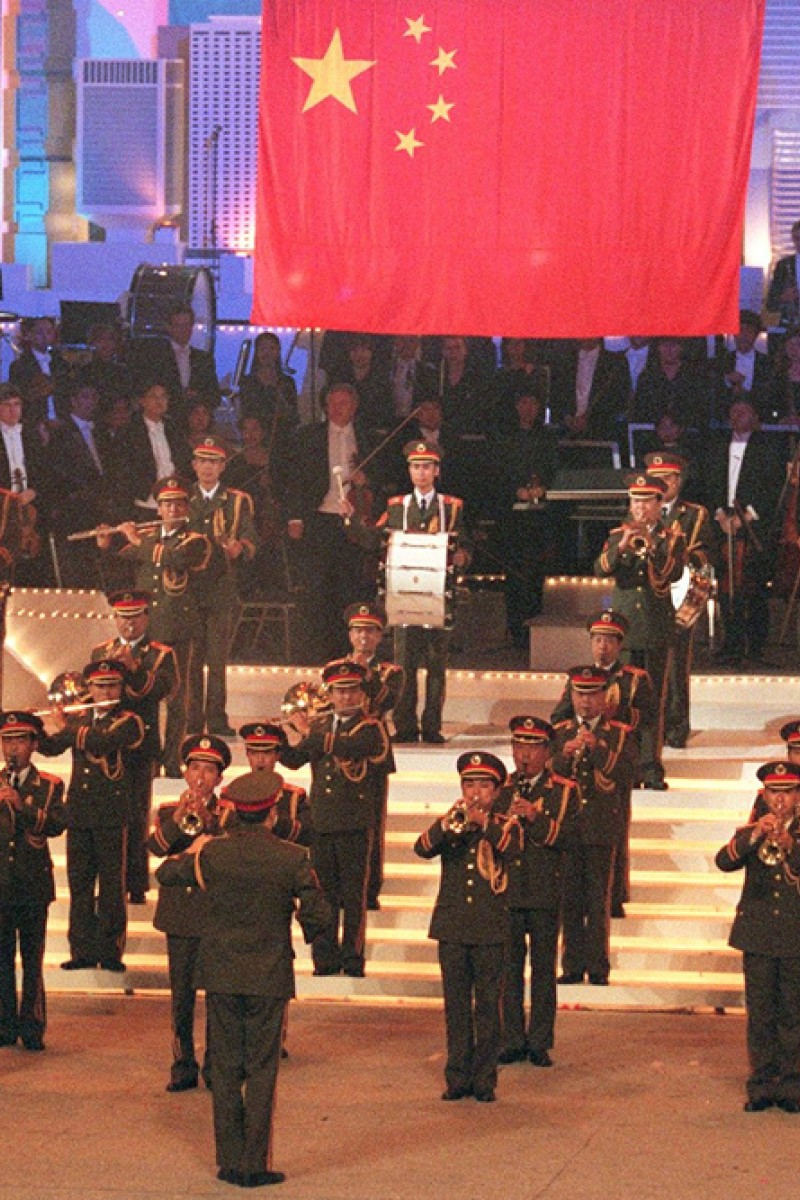
We don’t need or want the anthem law in Hong Kong, and here’s why
Do we really want to add a law into our city’s mini-constitution dictating how we can or can’t sing the Chinese national anthem?
 When even mispronouncing the words in the lyrics might potentially land a singer in jail, why would anyone think it would be a good idea to bring the proposed national anthem law to the 852?
When even mispronouncing the words in the lyrics might potentially land a singer in jail, why would anyone think it would be a good idea to bring the proposed national anthem law to the 852? Like many of my peers, I grew up learning silly rhyming poems and childish song parodies. My favourite was a funny rendition of the Chinese national anthem. Who would have thought, if I’d been born 20 years later, knowing and singing a fun version of the anthem might potentially land me in prison?
The draft national anthem law, currently in its second reading in the National People’s Congress (NPC) standing committee, the executive body of China’s national legislature, would impose sanctions for “malicious revisions to the lyrics or derogatory performances of March of the Volunteers”. Offenders would face the possibility of a 15-day detention. The worst part? According to The Beijing News, officials want to inserting that law into our Basic Law constitution, meaning that the people of Hong Kong would also be subject to the punishment. Zhang Haiyang, deputy head of the NPC’s law committee, has claimed it would “promote a patriotic spirit”. I see two problems with this.
The first lies with the proposed law’s inherent vagueness and its associated problems with selective implementation. Exactly what behaviours would be deemed as “a breach of solemnity” or “derogatory”? If mispronunciation is considered insincere, as was in the case of last year’s improper oath-taking in Legco, can poor Putonghua be classified as a violation? Would a pan-democrat be subject to the same treatment as a pro-establishment lawmaker, if both claim to have “unintentionally mispronounced” words? Would failure, or a refusal to pay attention, be reason enough for punishment? Sure, you can dismiss these questions as petty worries in the grand scheme of things but, but we’re a former British colony accustomed to freedom of speech and expression, and with no strong streak of patriotism. We are wary of fanciful attempts to bolster patriotism and unnecessary encroachments on our autonomy.
Simply put, the same piece of legislation could be seen as perfectly acceptable in some places and completely outrageous in others, which is why legislation should ideally be passed by a local legislature, and tailored to the people who elected the representatives.
The second problem lies with the bill’s education and promotion aspect, which explicitly says to “include the national anthem in primary and secondary textbooks”, and that “people should be encouraged to sing it on proper occasions to express patriotism”. A question: how does a blanket ban on “misbehaviours” promote “patriotism”?
Hongkongers barely acknowledged their wrongdoing after world football authorities censured and fined the local football association when crowds jeered at the national anthem at the China-Hong Kong World Cup qualifying match in 2015. I don’t believe that punishments imposed by Beijing or Hong Kong authorities would be any more persuasive than that of Fifa’s to the unruly football fans.
Basically, we have a problem-solution mismatch. Patriotism does not stem from penalty and deterrence, and respect needs to be earned – not imposed.